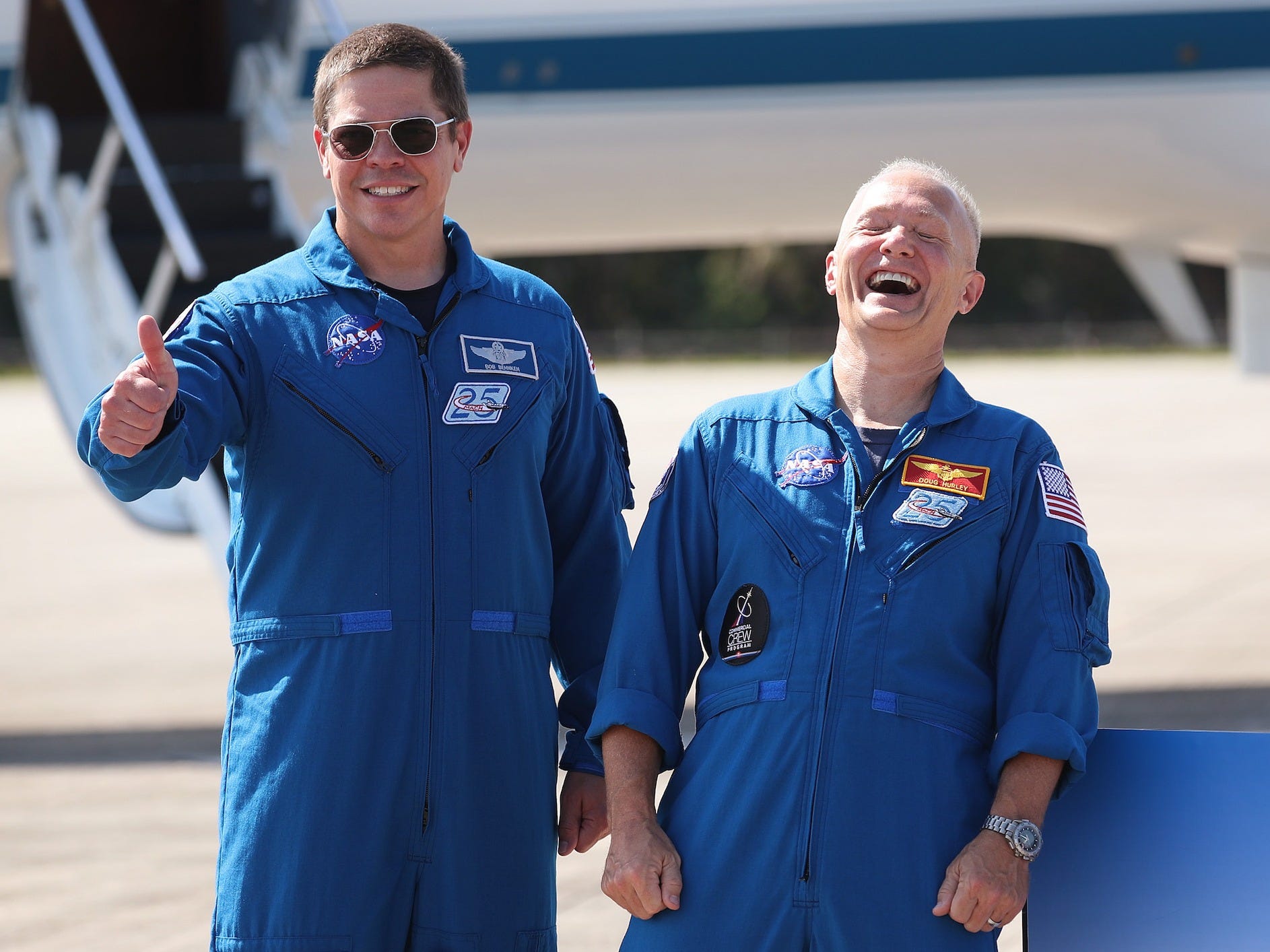- NASA astronauts Bob Behnken and Doug Hurley are scheduled to become the first people to rocket into space from US soil since the shuttle program ended in 2011.
- Behnken and Hurley will climb aboard SpaceX’s Crew Dragon on Saturday, May 30 and – weather permitting –lift off at 3:22 pm ET from Kennedy Space Center in Cape Canaveral, Florida.
- If all goes well, the pair will spend a day inside the spacecraft before docking at the International Space Station is complete.
- There is a toilet aboard their spacecraft, but no one seems to want to talk about it – though a former NASA astronaut who helped develop Crew Dragon told Business Insider it’s located above the astronauts’ heads.
- The commode is likely a basic hose setup and not too different from what’s on the Russian Soyuz. “We’ll let you know how it works out,” Hurley said.
- Visit Business Insider’s homepage for more stories.
Ever since the first US astronaut visited space, 59 years ago, NASA has struggled to find clean, comfortable ways to get people restroom facilities in space.
The first options were rather crude, makeshift solutions that resulted in some big messes.
Alan Shepherd, the first person in space, peed in his pants on the launchpad in 1961, but luckily was “totally dry by the time we launched,” he later said. The Apollo astronauts had to use roll-on cuffs to pee, and plastic bags for everything else. Sometimes waste escaped, and floated around.
After the Apollo missions ended in 1975, engineers described defecation and urination as the “bothersome aspects of space travel.”
Even now, as two NASA astronauts - Doug Hurley and Bob Behnken - prepare to lift off from American soil for the first time since the US Space Shuttle program ended in 2011, it appears that space toilets have become no less bothersome.
No officials with SpaceX or NASA would tell to Business Insider exactly where the toilet on Crew Dragon is located in the commercial spaceship or how it works. There are also no indications about where a toilet might be located in any of the publicly available technical drawings of the spacecraft.
"That toilet? Ah, we'll let you know how it works out," Hurley told reporters earlier this month. "They have one. We're going to - we'll try it out, and we'll let you know when we get back."
The mystery of SpaceX's proprietary toilet
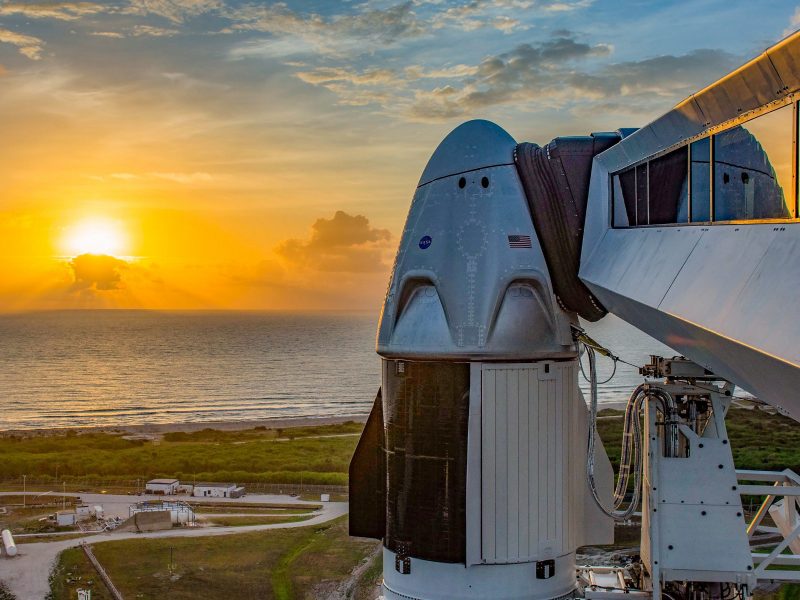
The commode is a rather important part of the launch plan, since Hurley and Behnken will spend nearly a whole day together locked in the Dragon capsule, before they reach the International Space Station.
NASA declined to provide Business Insider with any details on the new space toilet.
"Since that's a SpaceX system, the SpaceX PAOs [public affairs officers] would be the ones to ask on this," Brandi Dean, a spokesperson at NASA's Johnson Space Center said when asked where the toilet was.
SpaceX did not acknowledge Business Insider's query about the toilet.
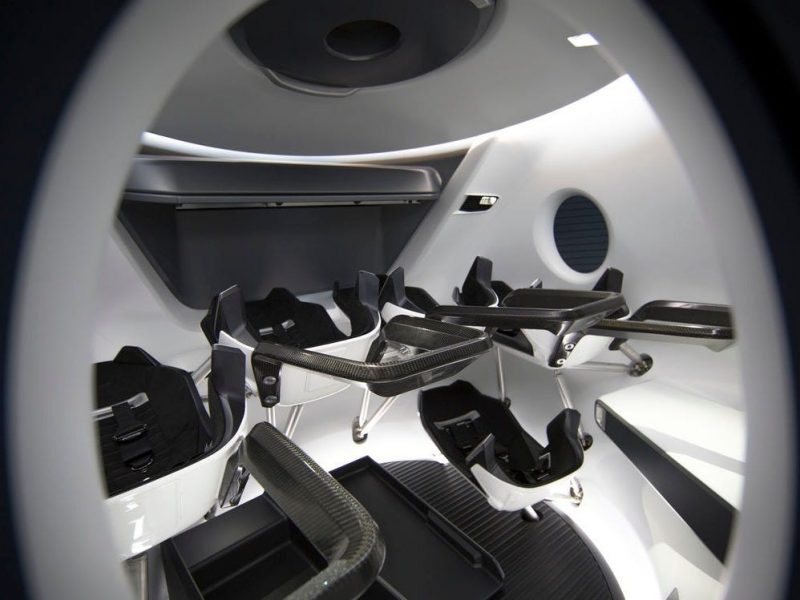
Hans Koenigsmann, SpaceX's vice president of mission assurance - the person in charge of safety and reliability for the flight - declined to provide basic information about the Crew Dragon's new commode during a May 25 press briefing.
"I'm not going to ... I don't know the potty answer to the potty question, so I'm going to skip ahead," he told Business Insider, when asked about the toilet's basic location and functionality.
Although Crew Dragon was built with the help of about $3.14 billion in taxpayer money, the spaceship was privately developed and many of its systems are considered proprietary secrets.
But the truth is probably that SpaceX didn't want to waste precious capsule space on a big space toilet, and the setup is likely a rudimentary hose and bag system, much like what is on the Russian Soyuz spacecraft.
What we've pieced together so far is that the commode is located somewhere above the astronauts' heads
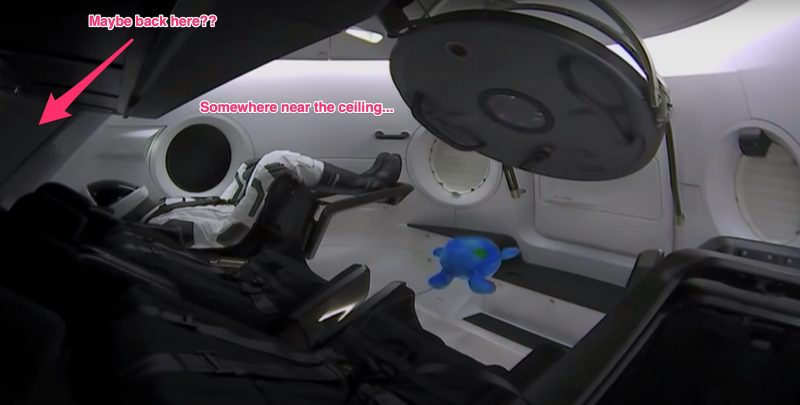
Former NASA astronaut Garrett Reisman, who worked for many years on the development of SpaceX's Dragon spaceships, told Business Insider that the toilet is near the top of the capsule.
"I don't know if the toilet is really cool, necessarily, but it is there," he said. "I can tell you it's located - in one-G [Earth gravity] - would be towards the ceiling. But of course in zero-G [microgravity] that doesn't matter."
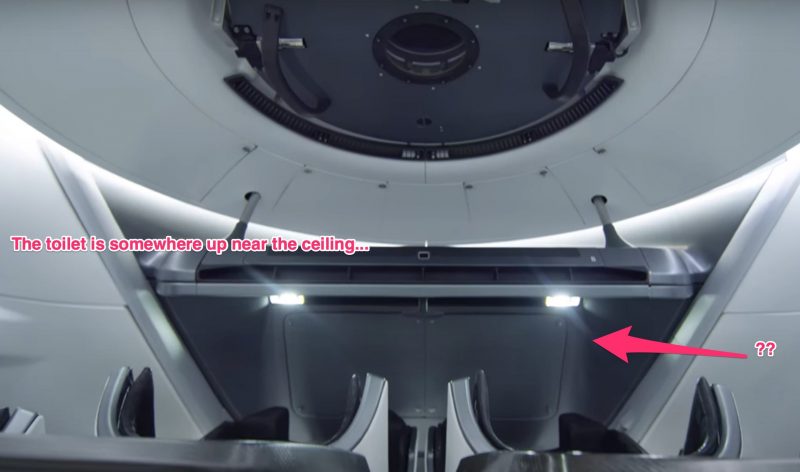
The Crew Dragon, which can seat seven people, is a larger vessel than the Russian Soyuz capsule, which has three very snug seats. Since terminating the space shuttle program nearly nine years ago, NASA astronauts have been paying Russia to get to space.
The Soyuz is equipped with a rudimentary hose system that astronaut Chris Hadfield called "basic," adding that astronauts get two enemas before they launch with the hope they don't have to use it at all.
But there is still not a ton of space on this 13-foot-wide SpaceX capsule to hide a toilet.
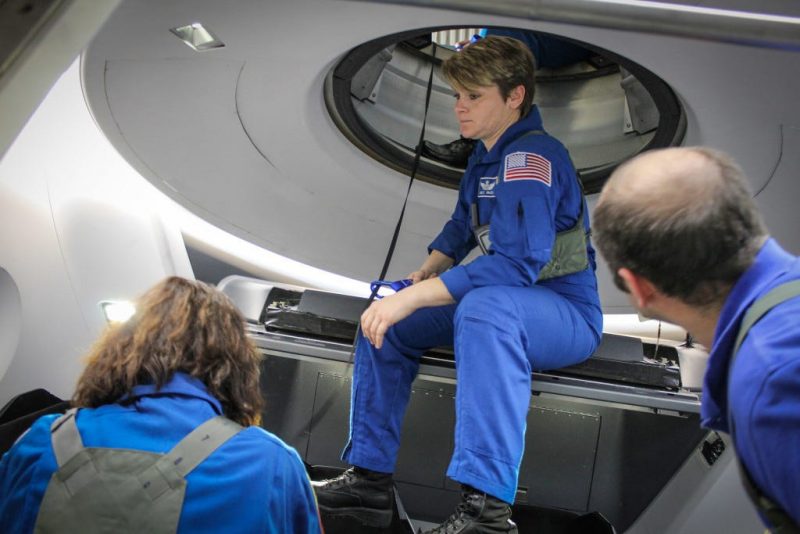
It's unclear how exactly the system works, but it must be a much smaller setup than the relatively enormous throne astronauts used previously on the Space Shuttle:
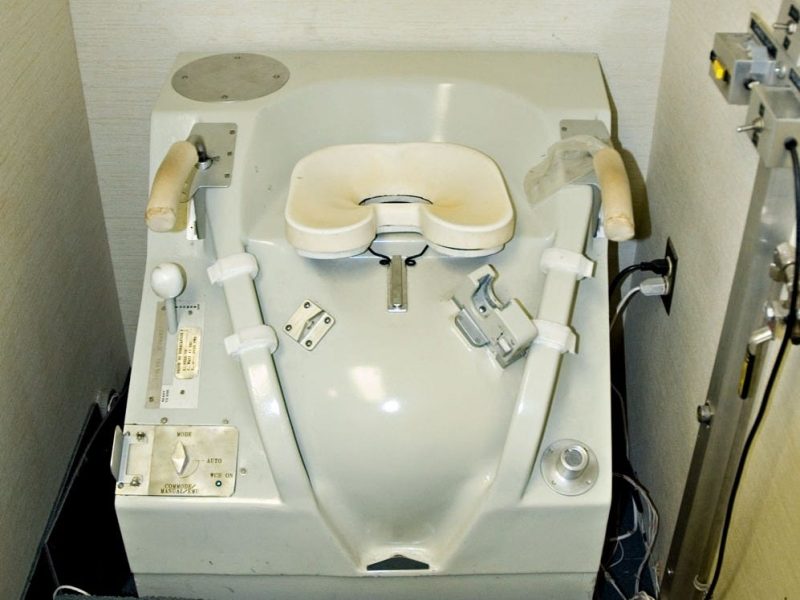
Going to the bathroom in space is no easy task
Retired NASA Astronaut Peggy Whitson previously told Business Insider that going to the bathroom was easily the worst part about life in space (being able to float is the best part, she said.)
Engineering toilets to function in microgravity is no easy task, and some of the very first hose hookups were only designed for men.
The US most recently spent $19 million on a Russian toilet for the ISS, rather than bothering to make its own system, and that throne is still pretty tricky to use. Astronauts have to practice their aim over a tiny cup-sized hole before they leave Earth, using a camera for alignment, and learning how to hook up the necessary hose and baggie systems.
If SpaceX could figure out how to engineer a better outer space bathroom system, astronauts would be a little more comfortable in space, and, eventually, on their journeys out to Mars.
But for now, the company seems intent on keeping whatever improvements or upgrades it may have - or not - provided to space bathrooms in a vacuum removed from public knowledge.
